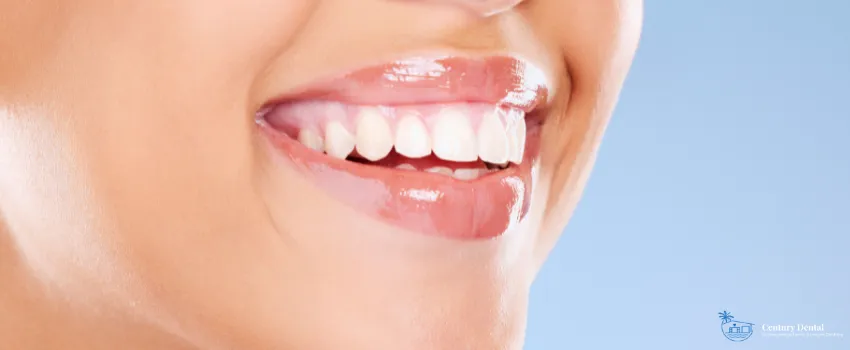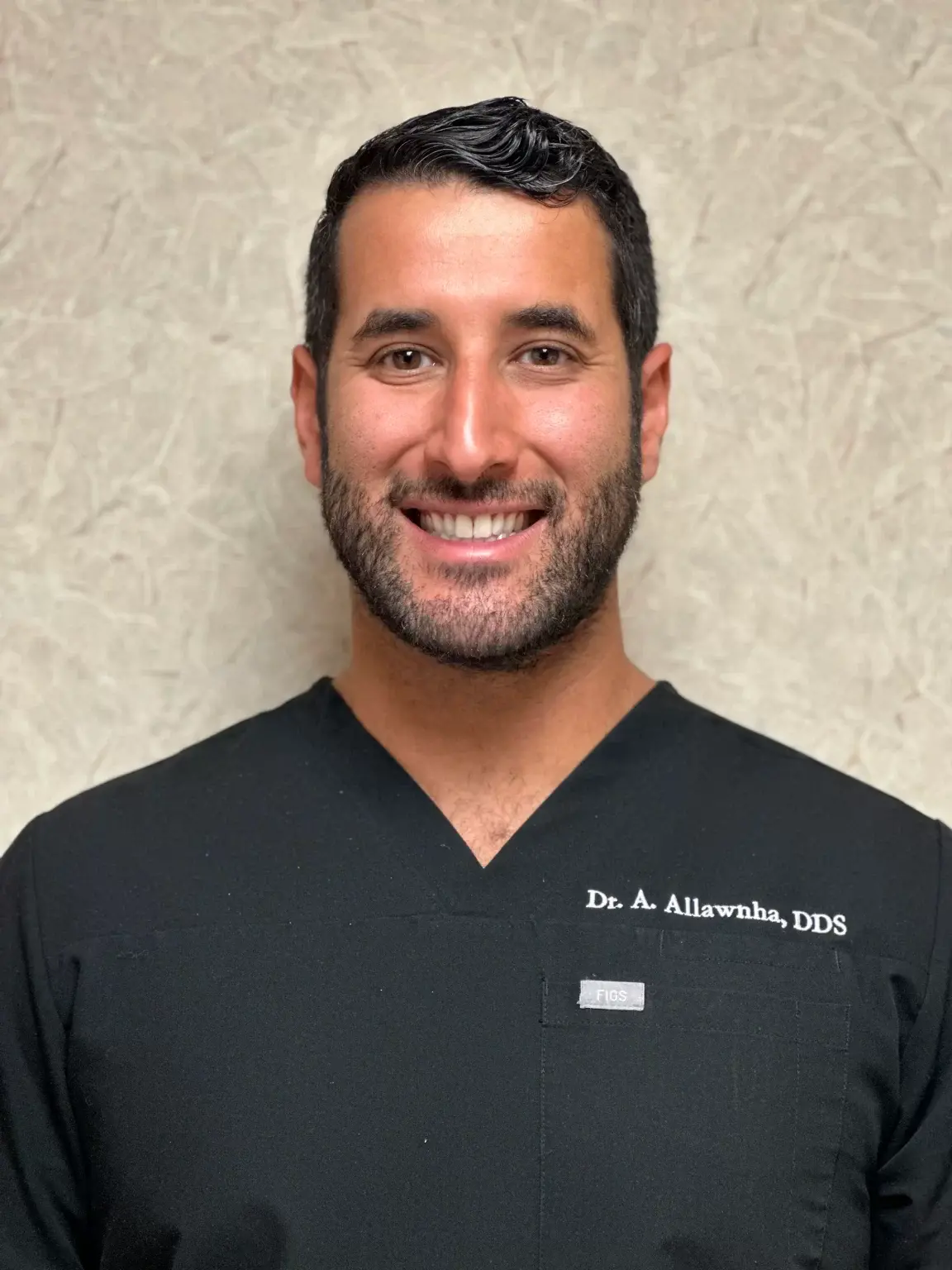Choose Wisely: The Best and Worst Foods for Your Teeth
What you eat can significantly impact your oral health. Learn about the worst food for your teeth and the food good for your teeth to maintain a healthy, beautiful smile.
Smiling is one of the most beautiful expressions a person can share with others. It radiates positivity, warmth, and happiness. But to keep that smile in its best condition, proper dental care is essential.
Regular brushing, flossing, and visits to the dentist, like those at Century Dental, can go a long way in maintaining healthy teeth. However, there is one more factor that significantly affects your dental well-being, and that is the food you eat.
Just as some are good for your overall health, some are healthy food for your teeth. Conversely, some foods can be harmful and lead to dental problems when consumed excessively. So, to help you make wiser choices in your diet, let’s explore the best and worst food for your teeth.
How Can Food Affect Your Dental Health?
Before diving deep into what food is bad for your teeth and what food is good for your teeth, you need to know how food can affect your dental health. Here’s how:
-
Food Can Cause Tooth Decay
Consuming sugary foods like candies and beverages leads to bacteria in your mouth converting these sugars into acids. These acids then erode your tooth enamel, significantly increasing the risk of tooth decay and the formation of cavities.
-
Food Can Erode the Tooth Enamel
Acidic foods and drinks can wear down the enamel, making your teeth more prone to damage.
-
Food Can Cause Gum Disease
A diet high in sugary and starchy foods can increase the risk of gum disease. The bacteria in your mouth feed on these foods, forming plaque, which can irritate the gums and lead to inflammation and gum disease.
-
Food Can Stain the Teeth
Certain foods and beverages, like coffee, tea, and red wine, can stain the teeth over time, affecting your smile’s appearance.
-
Food Can Help Strengthen the Teeth
Conversely, some healthy food for your teeth promotes dental care by providing essential nutrients that strengthen the teeth and protect the enamel.
What food is bad for your teeth?
Now, let’s dive deeper into the worst food for your teeth. Most of these foods mentioned are high in sugar, which can lead to tooth decay. The worst culprits include:
-
Sugary Foods and Drinks
Consuming sugary food like candies, sodas, and fruit juices can be detrimental to dental health. These sugary foods and drinks fuel oral bacteria, which then release acids. This acid production erodes tooth enamel, increasing the risk of cavities and tooth decay.
So, if you have a sweet tooth, it’s best to enjoy sugary treats in moderation and opt for healthier alternatives like fresh fruits.
-
Acidic Foods and Drinks
Consuming acidic foods and beverages, including citrus fruits, tomatoes, vinegar, and sodas, can be detrimental to your dental health. These items contribute to the erosion of tooth enamel, the protective outer layer of teeth. Over time, the acids in these foods and drinks can weaken and soften the enamel, leaving teeth more susceptible to damage and decay.
To protect your teeth, it’s best to consume acidic foods and drinks in moderation and rinse your mouth with water after consuming them. Avoid brushing your teeth immediately after consuming acidic substances, as this can further weaken the enamel. Wait 30 minutes before brushing to give your saliva enough time to neutralize the acid.
-
Starchy and Processed Foods
Starchy and processed foods, like chips, bread, pasta, and crackers, are some of the worst foods for your teeth. They can harm your teeth because they break down into simple sugars. These sugars can get trapped in the crevices and corners of your teeth, providing a feast for the bacteria in your mouth.
If you indulge in starchy and processed foods, it’s essential to practice good oral hygiene and remember what food is bad for your teeth. Good practices include regular brushing and flossing to remove any food particles stuck in your teeth.
-
Sticky and Chewy Foods
Foods that are sticky and chewy, including caramel, taffy, dried fruits, and gummy candies, pose risks to dental health. They have a tendency to adhere to teeth for extended periods, which increases the duration your teeth are exposed to sugars and acids.
If you can’t resist these sticky treats, it’s important to rinse your mouth with water or brush your teeth after consuming them to minimize the potential harm.
-
Alcohol
Alcohol can cause dehydration in your body, including your mouth. A dry mouth can lead to a decrease in saliva production. Since saliva plays a crucial role in rinsing away bacteria and neutralizing acids in the mouth, a reduced saliva flow can increase the risk of tooth decay and gum disease.
Furthermore, excessive alcohol consumption can also increase the likelihood of acidic vomit coming into contact with your teeth, leading to erosion and damage. If you choose to drink alcohol, it’s best to do so in moderation and drink plenty of water to stay hydrated.
What Food Is Good for Your Teeth?
Now, let’s shift gears and talk about the flip side. When talking about what food is good for your teeth, you can’t go wrong with the following:
- Dairy Products
First up are dairy products like milk, cheese, and yogurt. These calcium-rich foods are excellent for strengthening your teeth and bones. Calcium is a mineral that plays a crucial role in fortifying your teeth against decay.
-
Leafy Greens
Next, we have leafy greens as healthy food for your teeth. Spinach, kale, and their leafy companions are not only good for your overall health but also for your teeth. They are loaded with essential vitamins and minerals, such as calcium and magnesium, which help strengthen your tooth enamel.
-
Crunchy Fruits and Vegetables
Now, let’s move on to crunchy fruits and vegetables. Food good for your teeth, like apples, carrots, and cucumbers, act as natural toothbrushes. Their crunchy texture helps stimulate saliva production and can assist in gently removing food particles and plaque from your teeth.
-
Fish and Meat
Of course, we can’t forget about our protein sources, which are food good for your teeth – fish and meat. These savory options are packed with phosphorus, a mineral that works hand in hand with calcium to strengthen and preserve the health of your teeth.
-
Water
Lastly, the unsung hero of dental health – water. It’s not technically a food, but we couldn’t complete the list without mentioning its significance. Water is essential for staying hydrated and maintaining optimal saliva production in your mouth.
Choosing water as your go-to beverage is like giving your teeth a refreshing rinse after every meal. It helps wash away food particles and reduce the acidity in your mouth, thus protecting your teeth.
Conclusion
When it comes to your dental health, choosing the right foods can make a significant difference. The worst food for your teeth includes sugary, acidic, starchy, and sticky foods, as well as alcohol. These can increase the risk of tooth decay, cavities, and enamel erosion.
On the other hand, the food good for your teeth is typically rich in calcium and phosphates, such as dairy products, and those that stimulate saliva production, like crunchy fruits and vegetables. Green, leafy vegetables, nuts, and seeds can also improve dental health by providing essential nutrients and promoting gum health.
Get Professional Dental Care at Century Dental!
If you’re looking for a trustworthy Treasure Island, FL dentist, look no further than Century Dental. Our experienced team is committed to providing high-quality and personalized dental services to patients of all ages. Contact us today to book an appointment and experience the Century Dental difference!





